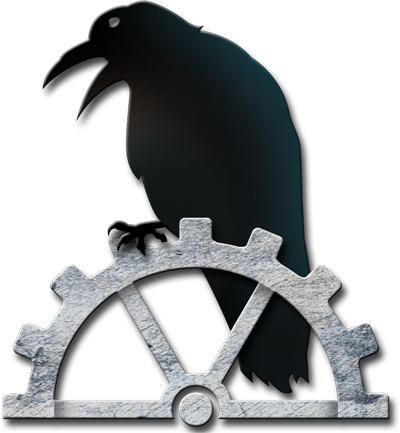 BY RIE SHERIDAN ROSE
BY RIE SHERIDAN ROSE
No, I am not talking about that movie with Gena Rowlands and James Garner , or even the book it was based on. I am talking about the indispensable tool that no writer should be without.
Last week, MeriLyn Oblad talked about how important punctuation is as a tool. Last month, Jessica Shen talked about how vital it is to have a good beta reader. There have been blog posts on many other aspects of grammar, editing, writing in general, but to me, the most important tool an author can have is a notebook. A writer’s notebook is like a piece of his or her soul. It is more than a mere journal, though it can serve that function in part.
For many, many years—and I have the filled pages to prove it—this, to me, was an actual, physical object. When I was working for a corporation that will not be named, the only thing that kept me sane on some of those overnight shifts was the spiral notebook that just fit into my smock pocket. In down time, on breaks, at “lunch” (at 2:00 AM, it feels funny to call it that) I could scribble down ideas, write poetry, note a plot bunny, whatever I needed. You would be surprised what can trigger a story idea—and when.
Today, with smartphones practically glued to one’s hand, there isn’t really any need for a physical notebook because “there’s an app for that!”—though I would argue that the sensation of writing is its own reward sometimes, and I think I still carry two or three notebooks in my car and purse.

One of my personal favorites, because it can be synced with the new Office 365 over all of your devices is One Note (caveat—I am an Android girl, and have no idea what is available for Apple use) I have been a proponent of One Note for years, and now that Office is all online, the ease of sync is amazing. You can section your “notebook” as needed, and adding pages is a breeze.
Another useful app is Evernote. It performs most of the same functions as One Note, but I personally don’t find it as adaptable to my needs.
When I first got my tablet, I downloaded My Binder, which I really liked, because it had separate notebooks for different things, like story ideas, titles, short stories, poetry, etc. I don’t use it on my phone because the screen is so small, but your mileage may vary.
Choosing the proper notebook is almost as important as filling it—for example, when using a physical notebook, I also prefer to have unlined pages, because occasionally I sketch a prop or costume beside the piece I am writing, but this is also a matter of personal choice.
The process of choosing a notebook should be looked at as an opportunity to express yourself to yourself. Take your time and enjoy the search. I usually browse the journal section in any bookstore, stationary, or paper store I enter. You never know when you will find the perfect writing companion. I usually have my next book (or two, or four) waiting for me to finish my current one.
What do you write in your book once you find it? Anything and everything. Here is a sample of the things in one of my notebooks: email addresses from friends and possible research URLs that I don’t want to forget; scraps of scenes I am working on at any given time; outlines of action to work out plot details; a transcript of a chat session that might make an interesting story someday; plot bunnies; maps of my fictional lands; poems; personal exercises (one volume had swatches of fabric taped into it and then descriptions of the characters who might wear them); and yes, journal entries—personal frustrations, triumphs, fears, feelings, all the things that you would tell a diary.
 The important word that kept popping up in the last couple of paragraphs was “personal.”
The important word that kept popping up in the last couple of paragraphs was “personal.”
Yes, you can share your book with friends or relatives if you want, but if you never want to show any of it to another soul, you don’t have to. And you can expand the idea of a personal writing notebook to more than one level. For example, I have my “writer’s notebook” which I carry everywhere, though I don’t always have time to use it, but I also have another notebook specifically for writing down dreams, some of which have later become plot outlines.
What this rather rambling column is getting at this month is that no writer should be without a notebook. Not only does it help you organize current projects, it also makes sure that you don’t lose that precious scrap of an idea that might one day become a best seller.
 Most importantly, it keeps you writing, and by daily communication with your silent partner—whether physical or electronic—you keep your creative juices flowing and the wheels of your imagination turning away. Choose the size and shape that best suits you, but always have something on hand. You never know when inspiration will strike.
Most importantly, it keeps you writing, and by daily communication with your silent partner—whether physical or electronic—you keep your creative juices flowing and the wheels of your imagination turning away. Choose the size and shape that best suits you, but always have something on hand. You never know when inspiration will strike.
Rie writes, edits, and proofs for The X from her home in Austin, Texas. A prolific writer, her short story, “Seven-year Itch,” is featured in Terra Mechanica: A Steampunk Anthology. Her first project for The X, Relative Evil by Debra Erfert, was released in July, 2014.

